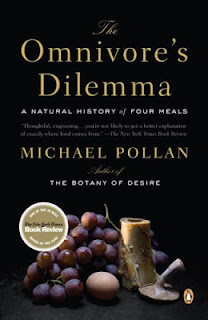Over the centuries the food available to the average Joe has increasingly expanded, thanks in no small part to globalization. Today, we find people eating the most varied meals from a number of different cultures; all the choices available to us beg for the question, “what ought we to eat?”.
Michael Pollan has decided to look into the matter in his book titled The Omnivore’s Dilemma by taking a close look at the various food institutions which deliver us the goods, tracing the entire process starting from the source itself to when the food finds its way on the table.
Using this information Michael Pollan depicts a very interesting picture of the American way of eating, but that’s still not the most interesting aspect of the book. After looking at the way in which Americans eat, Michael also takes the time to look at how food and hunger have contributed to shaping the modern world as well as the way in which our bodies have evolved.
In addition, he also explores the implications our food choices have not only on our health and well-being, but also on the future of mankind and even the planet itself. Ultimately, perhaps Michael strays a bit from the initial question (What should we eat?), but nevertheless it is important not to lose the message he is trying to communicate by criticizing the method of delivery.
He goes beyond simple concepts and makes some very intelligent observations as to how the balance between availability of food and hunger shaped human evolution, and how it will affect us in the future. In a nutshell, he helps put the importance which food plays in our lives into perspective.
 | Michael PollanPersonal site Michael Pollan is an American author, journalist, professor of journalism at the UC Berkeley Graduate School of Journalism and an activist. Many of his works and essays are centered on foods and eating habits, with some of his better-known books including The Omnivore's Dilemma and In Defense of Food. |


No comments:
Post a Comment